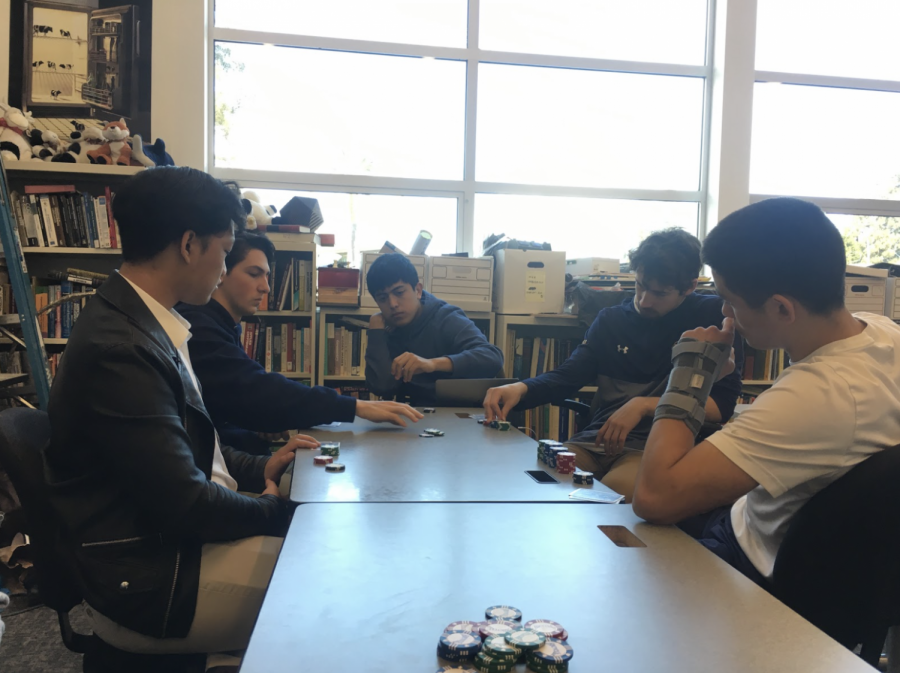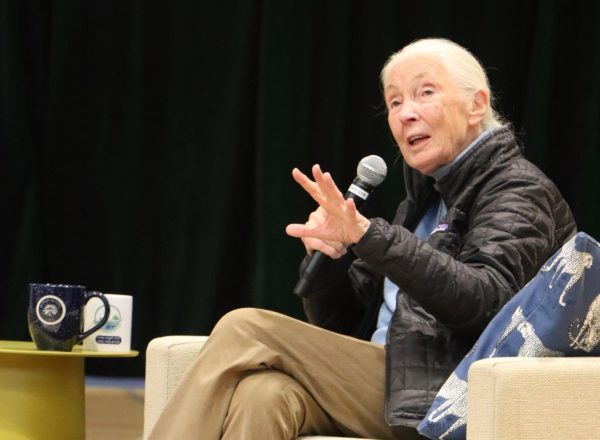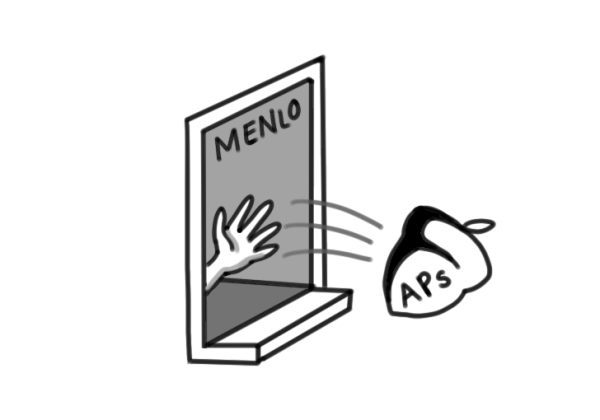The Plague of Senioritis
A group of seniors gather in the Neighborhood, a classroom in the back of the library, to play poker during lunch. Staff Photo: Shefali Sahai.
April 20, 2019
Second semester is well under way, and many Menlo seniors have been plagued with senioritis, a lack of motivation to perform well in school. “When I was a freshman, my sister was in the whole senioritis phase, so she wasn’t really doing anything,” senior Justin Nam said. When underclassmen see their older siblings and other seniors slacking off, it creates a cycle of expectations for what they believe senior year should be.
“We [used to] think that being a second semester senior is like being in one of those high school movies where everyone is always having fun and going out to do things all the time and having zero work,” senior Caroline Pang said. Another senior expressed a similar expectation. “I thought I wouldn’t be going to school as much as I am now,” Kevin Chen said.
Senior Nina Chandra also agrees that senior year is not what she expected it to be, but for a different reason. “There’s definitely some unexpected perks to being a senior. I feel like I have a better sense of my own identity and what I would like to study,” she said. By the end of their long high school journey, some seniors are more certain about themselves.
“It’s really nice to be able to look to the future and know where you’re going,” senior Charlie Donnelly added. “You’re confident in who your friends are, in what your doing, in your classes, and you’ve made important relationships with your teachers.”
The commonly upheld belief in a leisurely second semester cannot be realized without the cooperation of the teachers. “There’s a lot of work second semester. I was kind of hoping that the teachers would chill out, but they don’t,” senior Francie Huebner said. If teachers are assigning the same amount of work and have the same expectations as first semester, it makes it harder for seniors to disengage from school as much as they would like.
There are also those who intentionally try to make their senior year more relaxed by switching their mindset. Many Menlo students have become accustomed to working hard and find it difficult to break out of the grade-oriented mindset that was often a source of anxiety in their earlier years.
However, Donnelly has now been able to approach her work in a different way. “I have similar amounts of work, but I’m much more relaxed about it now,” Donnelly said. Though the workload does not necessarily decrease as some might expect, an individual’s attitude towards their work can definitely change.
It’s especially achievable for seniors like Luke Arnold who committed to a college at the end of their first semester. “Senior year comes with the connotation of being able to go to school for the sake of learning as opposed to getting good grades to get into college,” Arnold said. “I spent winter break consciously trying to reformat the way I approach school […] because it really is an opportunity I don’t think I’m going to get again, which is to come to class and listen because it’s interesting. I’m approaching school with an increased motivation to learn things and a decreased motivation to prove that I know them.”
Once seniors start to receive their college acceptances–an end goal that has been in the back of their minds throughout their high school years–some realize that instead of focusing on the grade that would get them into college, they can focus more on themselves and what they find interesting.
Seniors are generally seen as the most happy and relaxed group of kids on campus, but it’s important to note that senioritis affects each senior in a different way, depending on their past expectations, their current mindset and their specific circumstances.













